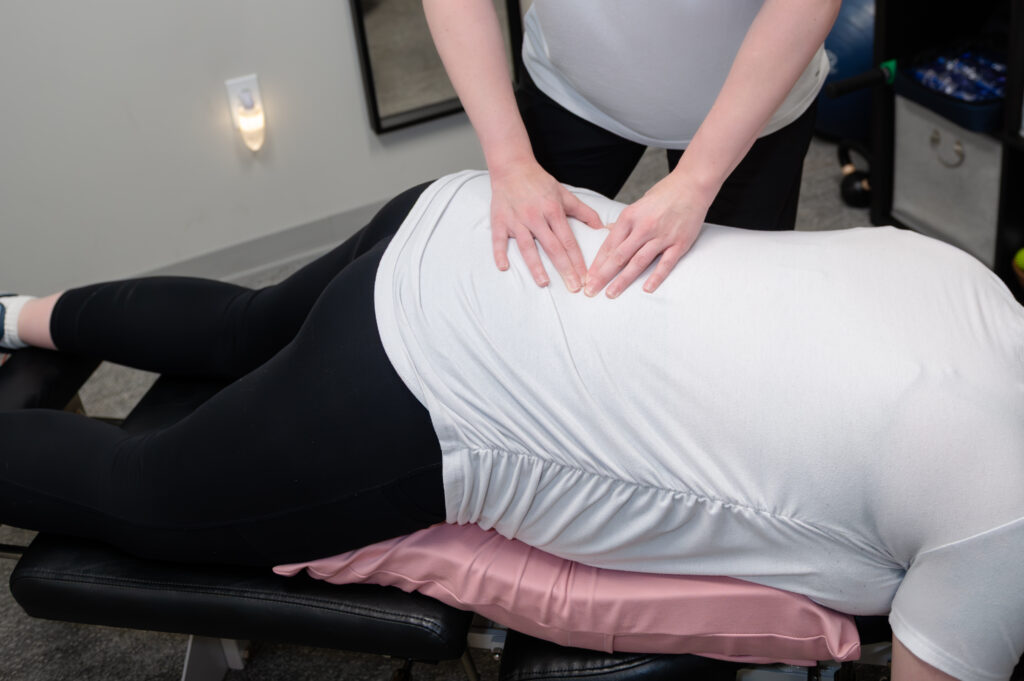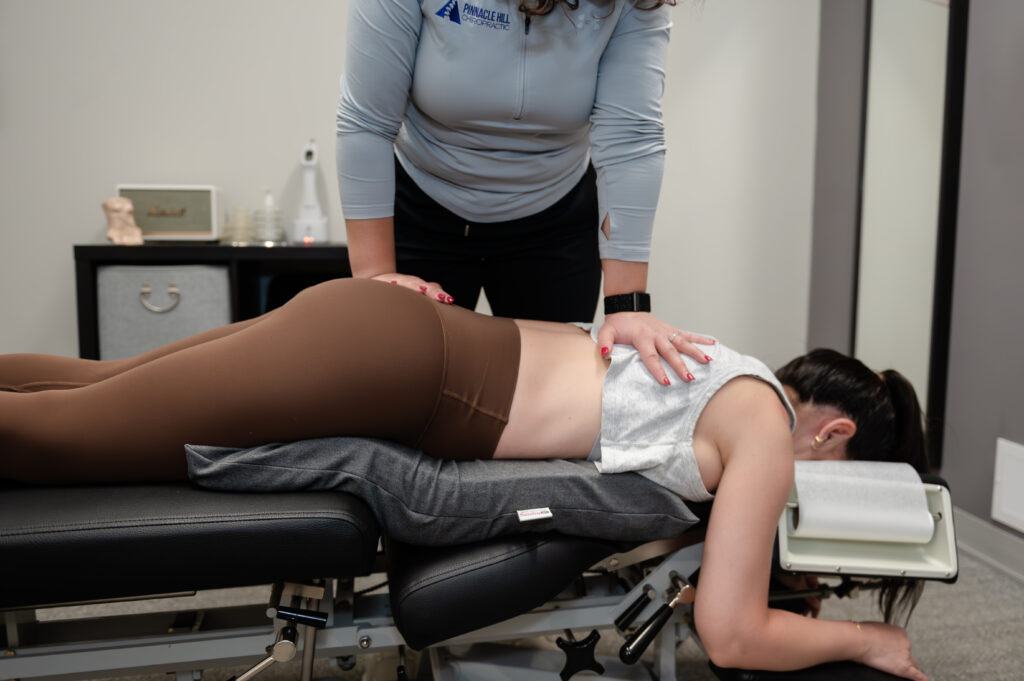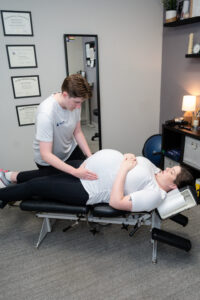PRENATAL CHIROPRACTIC CARE
Pregnancy is an exciting time—full of changes, both joyful and challenging. At Pinnacle Hill Chiropractic, we offer gentle, specialized pregnancy care to support your body through each trimester and prepare you for a smoother birth and postpartum recovery.
Why Pregnant Patients Need Specialized Chiropractic Care
During pregnancy, your body undergoes dramatic physical, hormonal, and biomechanical shifts. These changes can lead to discomfort, mobility challenges, and added stress on your musculoskeletal system. Chiropractic care during pregnancy helps your body adapt to these changes while promoting balance, mobility, pain relief, and optimal fetal positioning.
Benefits of Prenatal Chiropractic Care
Chiropractic treatment for pregnant individuals offers numerous evidence-based benefits, including:
- Reduced back, neck, hip, and joint pain
- Improved pelvic alignment and posture
- Relief from sciatica and round ligament pain
- Support for pelvic floor conditions (e.g., urinary incontinence, pelvic organ prolapse)
- Encourages optimal fetal positioning
- Easier labor and delivery
- Faster postpartum recovery
Prevention-Focused Care
Pregnancy-specific chiropractic adjustments aren’t just about treating pain—it’s also about preventing dysfunction. Regular visits support pelvic balance, maintain joint mobility, and may reduce the risk of complications such as breech presentation or prolonged labor.
Common Discomforts and Conditions We Address
Musculoskeletal Pain
- Low back pain
- Hip and pelvic pain
- Sciatica
- Neck and shoulder tension
- Pain with exercise
Pregnancy-Related Conditions
- Round ligament pain
- Pubic symphysis dysfunction (SPD)
- Pregnancy-related carpal tunnel syndrome
- Headaches
Pelvic Floor Dysfunction
- Urinary incontinence
- Pelvic pressure or heaviness
- Pain with penetration or intercourse
Postural Changes & Biomechanical Stress
- Altered gait
- Rib and mid-back pain from growing belly and breast tissue
Who Can Benefit from Prenatal Chiropractic Care?
- Pregnant individuals in any trimester
- Those experiencing pain, discomfort, or mobility challenges
- People unsure about how to modify exercise during pregnancy
- Anyone aiming to avoid interventions during labor
- Individuals preparing for a VBAC or breech correction
- Anyone seeking proactive, holistic support during pregnancy
Our Treatment Approach
Assessment
We start with a detailed intake and gentle physical exam to assess spinal mobility, posture, pelvic balance, and areas of tension.
Treatment
Our prenatal chiropractors use safe, pregnancy-specific techniques to relieve discomfort and support proper function—always tailored to your stage of pregnancy and individual needs.
Techniques and Modalities Used
- Webster Technique
- Active Release Techniques® (ART®) and myofascial release
- Kinesiology taping for belly, back, or joint support
- Personalized stretches and exercises
- Instrument-assisted adjusting
Meet Our Prenatal Chiropractors
Our team includes experienced Webster-certified prenatal chiropractors. Each is committed to gentle, patient-centered support through all stages of pregnancy and postpartum recovery.
Dr. Sarah Tirimacco focuses on pregnancy care and postpartum recovery using evidence-based techniques. She specializes in pelvic alignment protocols designed to address pregnancy-related discomfort and support optimal fetal positioning.
Dr. Rachel Stummer combines prenatal chiropractic expertise with pregnancy-specific nutrition counseling, Dr. Stummer provides integrated care for pregnancy-related musculoskeletal changes. She specializes in relieving pregnancy back pain and sciatica through targeted adjustments and personalized movement strategies.
Dr. Kieran Villnave delivers inclusive prenatal chiropractic care with specialized focus on pregnancy biomechanics and mobility. Their compassionate approach ensures personalized treatment addressing the unique physical demands of each trimester to support optimal comfort throughout pregnancy.
Schedule Your Prenatal Chiropractic Assessment Today
Feel better, move better, and prepare your body for birth with supportive prenatal chiropractic care.
Frequently Asked Questions About Prenatal Chiropractic Care
For additional information, please refer to our Patient Information page.









